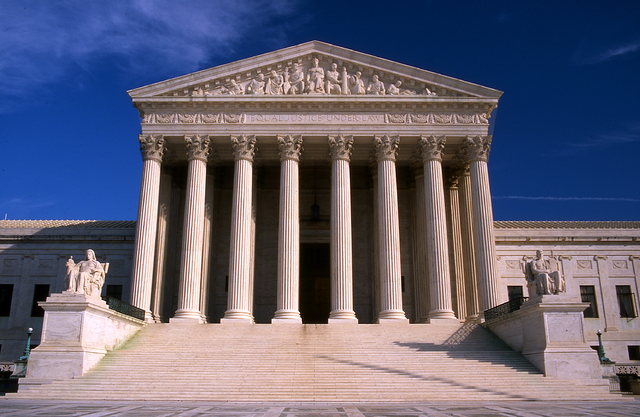U.S. Supreme Court to take up union fee case first sparked by Rauner
September 28, 2017
The U.S. Supreme Court will take up an Illinois case originally brought by Gov. Bruce Rauner that challenges the practice of government employee unions collecting fees from nonmembers, a question the court deadlocked over last year.
In one of his first acts in office, the Republican governor attempted to halt the passing along of the union fees in order to invite a legal challenge of the practice. The Supreme Court on Thursday agreed to consider the lawsuit that resulted.
A similar case out of California was already in the legal pipeline when Rauner acted in 2015. By the time it was decided, the Supreme Court was short one member following the death of conservative Justice Antonin Scalia. The court issued a 4-4 split decision that left the existing system intact.
Advertisement
Now with the appointment of Justice Neil Gorsuch, the court’s ruling in the Illinois case could deal a major blow to public-sector unions nationwide if he sides with the conservative justices who were in favor of doing away with the unions’ system.
The “fair share” fees at issue in the case are a source of funding for unions. The unions negotiate new contracts and handle grievances on behalf of all workers within a bargaining unit, not just those who are members of the union. The fees help pay for those efforts.
Illinois is one of about two dozen states that requires its workers to pay fair share fees to public employee unions if they are not union members. The thinking is that workers who are not part of a union still benefit from its services, even if they don’t support the union’s political agenda. Unions are not allowed to spend fair share fees on political activities such as campaign contributions.
Rauner has contended that the fair share system violates free speech and that workers should not have to support unions they don’t want to belong to. He also has questioned the restrictions on using fair share money for political purposes, saying it’s impossible to separate political activities because public-sector unions negotiate directly with the government.
The governor applauded the high court’s decision to take up the matter.
“No person should be forced to give up a portion of their pay each month to fund public sector union activity against their will,” Rauner said in a statement. “It’s a fundamental violation of their First Amendment right to free speech and association. I am hopeful the court will see it that way in the end.”
The American Federation of State, County and Municipal Employees — the largest public employee union in Illinois and the one at the center of the lawsuit — called the case “yet another example of corporate interests using their power and influence to launch a political attack on working people and rig the rules of the economy in their own favor.”
Advertisement*
“When working people are able to join strong unions, they have the strength in numbers they need to fight for the freedoms they deserve, like access to quality health care, retirement security and time off work to care for a loved one,” AFSCME President Lee Saunders said in a statement. “The merits of the case, and 40 years of Supreme Court precedent and sound law, are on our side. We look forward to the Supreme Court honoring its earlier rulings.”
The Illinois case dates to 2015, when Rauner issued an executive order that directed state government to stop passing fair share fees on to unions. Anticipating a legal challenge, Rauner also filed a federal lawsuit seeking to have his decision declared legal and hoping to bring the issue to the Supreme Court.
The executive order was put on hold when a judge in Downstate St. Clair County ordered the state to keep passing the fees along while the matter continued to play out in court. Around the same time, a federal judge dismissed Rauner from a parallel case, saying he lacked standing to challenge public unions in his official capacity because he had “no personal interest at stake.”
Three workers who also were contesting the payments were allowed to proceed with their own complaint. That’s the case now before the Supreme Court, Janus v. AFSCME.
The lead plaintiff, Mark Janus, is a child support specialist at the Illinois Department of Healthcare and Family Services. He’s being represented by attorneys at the National Right to Work Foundation and the Illinois-based Liberty Justice Center, which is an affiliate of the Illinois Policy Institute, a conservative think-tank with close ties to Rauner.
Arguments in the case are likely to take place in early 2018, with a decision expected before the June adjournment of the court.
Last year, the eight justices on the court deadlocked over a similar case brought by an Orange County teacher who asserted that her free speech rights were violated by being forced to pay about $650 a year in fees to a union.
Unions had been bracing for an unfavorable ruling after oral arguments in January 2016 indicated that a majority of the justices were skeptical of the fair share arrangement. The death of Scalia the next month left the court without a majority, leading to the split decision.
___
(c)2017 the Chicago Tribune
Visit the Chicago Tribune at www.chicagotribune.com
Distributed by Tribune Content Agency, LLC.
Advertisement








